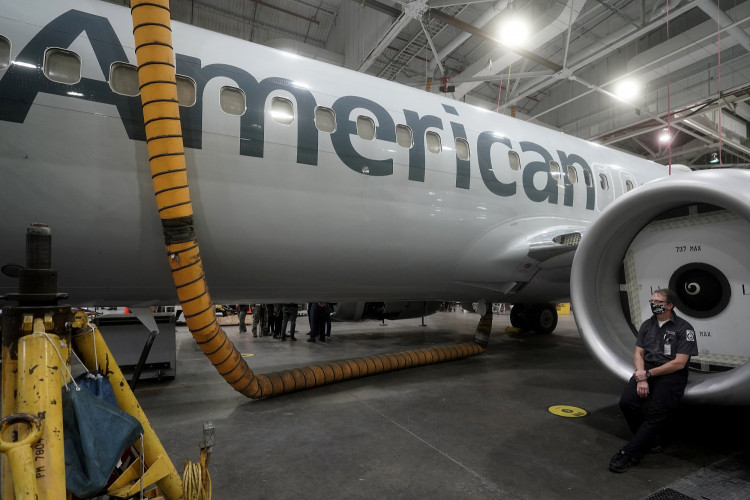Shares of American Airlines took a nosedive on Wednesday after the company slashed its profit outlook, attributing the downgrade to weaker-than-expected demand and complications with a recent booking system upgrade. The news sent American Airlines' stock down nearly 15%, marking its worst trading day since June 2020, during the height of the pandemic.
The airline's Chief Executive, Robert Isom, revealed these challenges during an appearance at a Wall Street conference. He pointed to a "softer domestic revenue environment," noting that the outlook for domestic travel had "worsened materially" compared to their April forecast.
Revised Profit Outlook
American Airlines now projects its second-quarter earnings per share to range between $1.00 and $1.15, a significant downgrade from the previous estimate of $1.15 to $1.45. Additionally, the carrier adjusted its capacity growth forecast, expecting to add only 3.5% in the second half of 2024 after an 8% increase in the first half.
Isom's remarks highlighted the challenges faced by the airline industry, particularly in balancing operational changes with market demands. The weaker forecast comes on the heels of American Airlines announcing the departure of Chief Commercial Officer Vasu Raja in June. Isom praised Raja for his innovative approach but acknowledged the need for a reset to focus on execution and detail-oriented operations.
Booking System and Customer Impact
One of the significant issues cited was the execution of a new booking system intended to encourage customers to book directly through the airline's app rather than via corporate travel managers or online platforms. This change, however, drove some customers away, exacerbating the revenue shortfall.
"We have to make sure we're reactive in the short run, and we can never be difficult to do business with," Isom emphasized, acknowledging the missteps in the booking system rollout.
Market Reaction and Industry Context
The revised guidance and Raja's departure shook investor confidence, causing American Airlines' shares to plunge. The company also revised its Total Revenue per Available Seat Mile (TRASM) guidance for the second quarter, now expecting a decrease of 5% to 6%, compared to the prior forecast of a 1% to 2% decline. The operating margin outlook was similarly adjusted downward, now anticipated to be in the range of 8.5% to 9.5%.
The airline's struggles come despite a robust recovery in travel demand as pandemic restrictions ease. Over the Memorial Day weekend, TSA checkpoint numbers hit new highs, with over 2.9 million travelers flying on May 24 alone. However, American Airlines has been unable to capitalize fully on this resurgence.
Industry Comparisons
In contrast, United Airlines reiterated its strong profit guidance for the second quarter, projecting earnings per share between $3.75 and $4.25, signaling a positive outlook for the summer travel season. This discrepancy highlights American Airlines' unique challenges in capturing both leisure and business travel segments.
Raymond James managing director Savi Syth noted, "We were surprised by the level of the guidance cut, but the factors behind it are probably not surprising to us." Syth pointed out that excess capacity and strategic missteps, particularly during off-peak travel seasons, have hindered American's performance.
Strategic Shifts and Future Prospects
Raja's strategic initiatives, including a focus on the New Distribution Capability (NDC) platform, faced technical issues and limited consumers' ability to book flights through traditional third-party channels. This, coupled with a reduction in the sales force and an emphasis on leisure destinations over lucrative business travel hubs, further strained the airline's revenue.
"The aggressive push on NDC was right ... but doing it at the same time that you slash your sales force and make some other changes was not wise," Syth commented.
Despite these setbacks, Syth expressed confidence in CEO Robert Isom's ability to steer the company back on track. However, she cautioned that reversing the operational mistakes and regaining market share would take time.
"I really think it comes back down to their large corporate strategy, [and] I think execution was not good," Syth said. "They're hurting from that now, and it is reversible, but it will take time."






